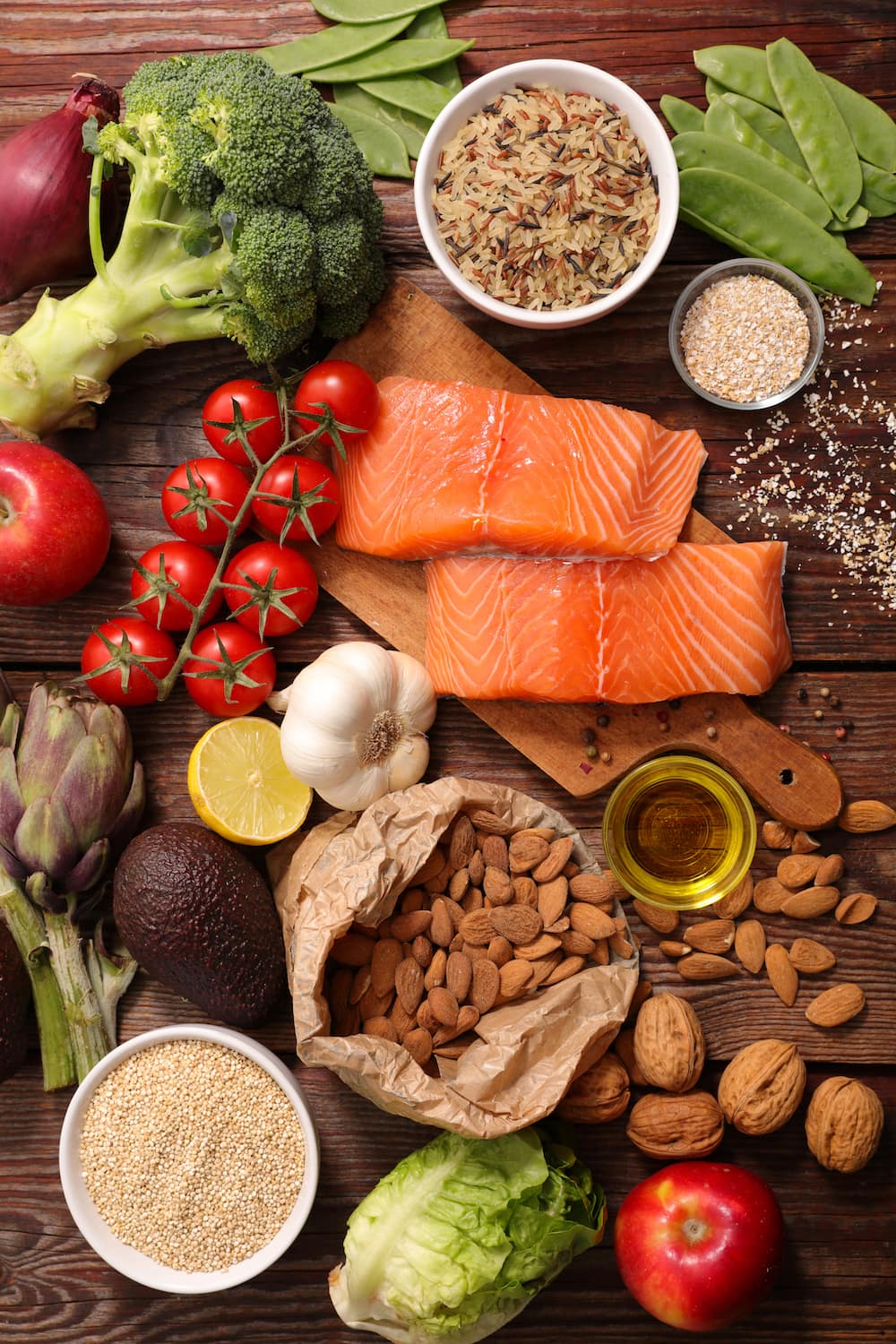It affects thousands of women, but often goes undiagnosed. So what is PCOS? What are its symptoms and causes? And most importantly, what can be done to treat it? Here, award-winning nutritionist and women’s health specialist Nicki Williams gives Happiful readers the expert lowdown
Do you have – or know someone who has – polycystic ovary syndrome (PCOS)? Unfortunately, the odds are that you do, given that it’s a condition affecting an estimated 4–12% of reproductive-age women. And it can be serious.
But the good news is that the illness can be managed. Here, we cover the essential information you need to know about the condition, and what you can do about it.
What are the symptoms?
Symptoms can vary for each person, but they generally fall into three categories:
- Excess androgens – signs include acne, oily skin, excess facial and body hair, and hair loss.
- Menstrual irregularities, such as missing or irregular periods, infertility, or multiple cysts on the ovaries.
- Metabolic issues and weight gain, including blood-sugar swings, insulin resistance, and obesity.
As well as these distressing symptoms, if left untreated long-term PCOS can increase your risk of diabetes, heart disease, depression, anxiety, and endometrial cancer.

Common myths
The symptoms of PCOS are complex and multifactorial, and can’t be generalised. Each woman with the condition could have many of the symptoms, or just a few. So here we dispel some of the misconceptions surrounding the condition:
- You don’t need cysts on your ovaries (it really should be re-named!)
- You certainly don’t have to be overweight either. Almost half of PCOS sufferers are of an average weight.
- Around 80% of women with high androgens have PCOS, but not all those with PCOS do.
- Lifestyle factors – such as stress, poor diet, and a lack of regular exercise – can be to blame in many cases.
How is it diagnosed?
Not very well it seems! The broad definition, and multiple symptoms, can lead to misdiagnosis and the root cause of the condition (such as inflammation, or insulin resistance) is not investigated. Some PCOS organisations estimate that around 50% of women who have PCOS are currently undiagnosed. It’s not tested for routinely, so tends to be diagnosed only if you are having trouble getting pregnant, have irregular periods, or have had hormone tests done for facial hair or male pattern baldness.
Ultrasound is often used to identify cysts on the ovaries caused by undeveloped follicles that have not matured enough at the time of ovulation to allow the egg to break through. Although PCOS is named after these cysts, they are not actually a prerequisite for a diagnosis of PCOS, as cysts can come and go, ovulation can be missed, and equally you may have cysts showing up but be negative for PCOS, as your ovaries change every month.
Blood tests might look for pituitary hormones like FSH and LH, as well as progesterone, oestrogen, testosterone, blood-sugar markers, and thyroid hormones.

Standard treatment
Standard medical treatment for PCOS includes the use of oral contraceptives, insulin sensitising medications (such as Metformin), and fertility drugs. But while there certainly is a genetic component that increases one’s risk of the syndrome, PCOS is significantly affected by lifestyle factors – including diet, exercise, environmental toxins, and stress. So there are many effective natural treatments depending on the root cause, which can vary for each woman.
The root causes of PCOS
1. Insulin resistance and/or weight gain
Too much sugar and too many refined carbs in your diet can, over the long term, cause the insulin receptors in your cells to shut down, allowing higher levels of insulin to be released by the pancreas. This is the most common cause of PCOS, as high levels of insulin can interfere with ovulation and stimulate excess androgens.
It’s common to be overweight (but not always!) – fat tissue produces an enzyme called aromatase, which increases androgens, so the more overweight you are, the more testosterone and androgens you are likely to be producing.
What are the tell-tale signs?
– You’ve been told you’re pre-diabetic, or your fasting glucose or HbA1c is high, or your LH is high.
– Your waist is larger than your hips.
– You struggle with appetite control, sugar or carb cravings and/or losing weight.
What to do?
- Switch to a low-sugar, low glycemic-load diet, including protein, healthy fats, and healthy carbs.
- Try overnight fasting – a fast between dinner and breakfast of 12–16 hours has shown to help with insulin sensitivity and weight loss.
- Regular exercise helps to improve insulin sensitivity.
- Herbal support can be helpful (including Agnus Castus, Berberine and Inositol), but get advice from a qualified herbalist or nutritional therapist.

2. Stress
Stress has a huge role to play in PCOS – which could be why we are seeing an increase. When we are constantly in “fight or flight” mode, the body is not going to prioritise your reproductive hormones – the last thing the body wants is to conceive in a stressful world! So excess stress hormones tend to suppress the production of oestrogen and progesterone, and therefore interfere with ovulation. Cortisol – the main stress hormone – also increases insulin (see above).
What are the tell-tale signs?
– You feel overwhelmed and find it hard to switch off.
– You get anxious or find it hard to sleep.
What to do?
Prioritise at least 10 minutes a day of stress management – try mindfulness, deep breathing, a relaxing bath, reading, or listening to music.
- Supplements can help support the adrenal system – these include magnesium and vitamin C.
3. Inflammation (especially in your gut!)
Inflammation damages your hormone receptors and suppresses ovulation. If you have any gut issues you may have inflammation happening, so sorting out your digestive health may help with your PCOS.
What are the tell-tale signs?
– You have irritable bowel syndrome (IBS) or other digestive issues such as constipation, diarrhoea, bloating, gas, pain, nausea, and reflux.
– You have frequent infections, headaches, sinus issues, joint pain, or skin issues such as eczema or psoriasis.
What to do?
- Eliminate potential food intolerances – such as gluten, or dairy – for at least four weeks.
- Have a stool test done to check for underlying infections, and work with a qualified health practitioner to rebalance the gut and reduce inflammation.
- Reduce exposure to environmental toxins that could be causing inflammation such as processed foods, BPA in plastics, pesticides on non-organic produce, and synthetic chemicals in cleaning, laundry and personal care products.

4. Low thyroid hormone
If you don’t have enough active thyroid hormone, your ovaries might not have the energy they need to ovulate.
What are the tell-tale signs?
– Low thyroid symptoms include weight gain, fatigue, anxiety, depression, brain fog, hair loss, PMS, low libido, feeling cold, dry or puffy skin, constipation and more.
– If you have a family history of thyroid issues, or auto-immune conditions, you may be more at risk.
What to do?
- Get a proper thyroid test done (to check TSH, T4, T3 and TPO antibodies).
- Ensure you are getting the right nutrients for your thyroid (see right).
5. Nutrient deficiencies
Specific nutrients are needed by your ovaries (and thyroid) to function properly. These include iodine, selenium, iron, vitamin D and zinc, and deficiencies can interfere with ovulation.
What to do?
- Supplement with a good multivitamin which includes the active forms of the nutrients your ovaries need.
- Take vitamin D3 with K2 throughout the winter, if you live in the northern hemisphere, or if you don’t get enough exposure to direct sunlight without sunscreen.
- Do check with your doctor before taking any new supplements if you are on any medications, or have other health conditions.
Helpful foods for PCOS
- Low GL carbs – whole grains, brown rice, sweet potatoes, quinoa, buckwheat, brown rice pasta, and soba noodles.
- Healthy fats – olive oil, coconut oil, nuts, seeds, avocado, and oily fish.
- Organic protein – meat, fish, seafood, full-fat dairy (if not eliminating), pulses and legumes.
- Vegetables – all kinds, all colours, and organic where possible!
- Cinnamon – helps with balancing blood sugar.
- Turmeric – helps to fight inflammation.
Nicki Williams is an award-winning nutritionist, author, speaker, and a leading expert in women’s health and hormones. She is the founder of Happy Hormones for Life, and recently published her first book, ‘It’s Not You, It’s Your Hormones’ (Practical Inspiration Publishing, £14.99). Visit happyhormonesforlife.com to find out more and to receive help in identifying and addressing the root cause of your PCOS.


Comments